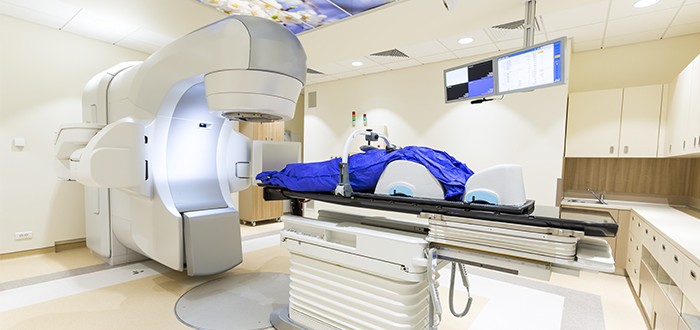Treating pleural effusions is essential for relieving chest pain and freeing up breathing if you’re an early stage mesothelioma patient. But the treatment is invasive and carries a risk.
The risk is it will promote the seeding of mesothelioma cells. The problem with seeding is exactly what that word implies. When seeds are planted, it later yields a crop. In this case, the crop is a harvest of mesothelioma tumors.
Seeded mesothelioma tumors sprout on the chest wall as infrequently as two percent of the time or as frequently as one out of every two times.
In the United Kingdom, they have been trying to prevent — or at least minimize — mesothelioma tumor seeding.
They do it by using radiation immediately after the effusion treatment procedure ends. It’s called prophylactic irradiation of tracts, PIT for short.
Many British mesothelioma doctors place a great deal of faith in PIT. And that’s got some mesothelioma scientists nervous.
The reason is that no one can say with any certainty if PIT actually does any good. Or, if it does, is there a right way to administer it for best results.
It doesn’t help that the leading medical societies all have different ideas about how PIT should be administered. They disagree on who is a qualified candidate to receive it, how much radiation should be given, and so forth.
Major Study on PIT Needed
A collective of mesothelioma doctors and researchers has formed in the hope of organizing and conducting a clinical trial to answer these questions and end the debate over PIT.
The doctors and researchers hail from a dozen hospitals, universities and cancer clinics in the U.K. They made their pitch for a PIT clinical trial in a recent edition of the journal BMJ Open.
The authors begin by noting that there have been only three previous trials of PIT. They weren’t particularly large trials – the biggest had just 61 patients enrolled.
But more distressing was that the trials yielded conflicting results. According to the authors, PIT was found in one trial to significantly reduce seeding. But the other two gave no confirmation of this.
The authors also reported a lack of conclusive evidence one way or the other in the available literature on PIT.
Yet, despite the uncertainty surrounding PIT’s actual worth, about three-quarters of the cancer centers equipped to administer radiation therapy routinely offer the anti-seeding preventative, the authors said.
For these and other reasons, the authors state they believe a large, definitive clinical trial of PIT is essential.
Larger Study of Mesothelioma Patients Is Goal
As envisioned, the authors want to conduct this investigation as a multicenter Phase III randomized controlled superiority trial.
They said they believe a total of 374 patients would provide a sufficiently large cohort of study subjects.
But to be eligible for enrollment, each patient would need to be capable of receiving radiation therapy within 42 days of a chest wall intervention.
Once enrolled, the patients would be randomized into two arms. The first arm would be given 21 Gy of radiation in three fractions. The second arm would receive no radiation.
The authors indicated they would consider it very clinically significant if the rate of chest wall tumors within six months after radiation dipped by as little as five percent.
The plan for this study is that it will end two years after the final patient is enrolled. At that point, data collected from all the participating study sites will be analyzed and reported.
The title of the article is “Protocol for PIT: a Phase III Trial of Prophylactic Irradiation of Tracts in Patients with Malignant Pleural Mesothelioma Following Invasive Chest Wall Intervention.”

